Gracefully Embrace the Golden Years, Exploring the Secret of Women's Healthy Menopause from the Perspective of Chinese Medicine
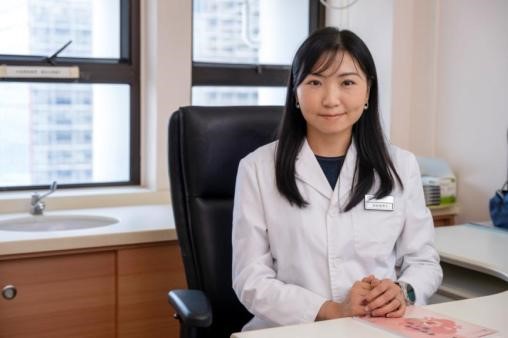
Each physiological phase for a women lasts for 7 years, according to traditional Chinese medicine. When reaching the 7th seven-year cycle, that is, the age of 49 or so, a woman will have to face the issues of menopause and later old age. These are actually the natural physiological phenomena. The “qi” (vital energy) in the kidney will gradually drop, namely the “Tiangui failure” in traditional Chinese medicine. Women may experience symptoms such as hot flashes and dry skin, which is regarded as a process of change in the endocrine system in modern medicine. Traditional Chinese medicine targets at a moderate transitional period, helping women reduce the symptoms and alleviating the negative effect.
Natural Physiological Changes?
“It is a natural process that the ovary will gradually decline when a woman reaches menopause or old age.” Dr. Chin Wing Yee, Associate Professor of Practice, Clinical Division at the School of Chinese Medicine at Hong Kong Baptist University, emphasised on the importance of adjusting mindset and adopting appropriate therapies to reduce the loss of kidney qi to alleviate the symptoms. “However, the trend nowadays boosts slow aging which puts certain pressure on women. Furthermore, due to family or work, urban women often stay up late and are deprived of sleep, thus causing hormonal imbalance. This is equivalent to liver qi / energy stagnation which affects blood and energy circulation, triggering anxiety and physical discomfort.”
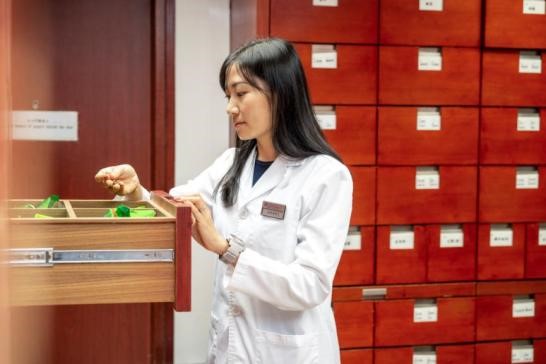
“It is a natural process of women reaching menopause or old age.” Dr. Chin emphasised.
Common physical discomforts women experience during menopause include hot flashes, sweating, insomnia, hair loss, dry eyes, dry skin, vaginal dryness, tinnitus, bone pain, etc. Gynecological problems related to menstrual disorders are also found, such as irregular menstruation or continuous bleeding. However, not all women experience obvious symptoms, and each woman's menstrual pattern varies based on individual differences. Dr. Chin points out that stress, inadequate sleep, staying up late, too many pregnancies, and unhealthy diet habits, such as fasting, stop eating rice, having too much cold food, may easily cause damage to the spleen and the stomach. As a result, aging and menopause will take place earlier.
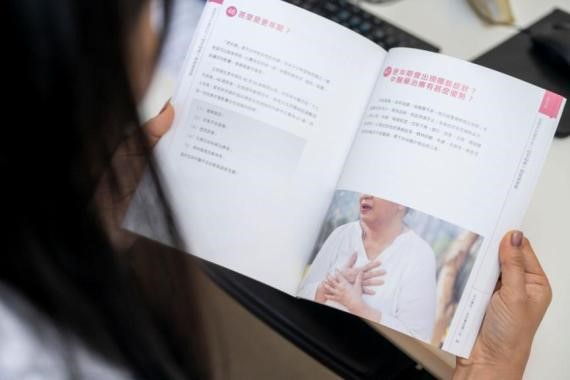
Common physical discomforts women experience during menopause include hot flashes, sweating, insomnia, hair loss, dry eyes, dry skin, vaginal dryness, tinnitus, bone pain, etc. Gynecological problems related to menstrual disorders are also found, such as irregular menstruation.
Targeted Traditional Chinese Medicine Treatments
Dr. Chin indicates that traditional Chinese medicine treats patients with syndrome differentiation, with a focus on the yin yang balance. Different types of kidney qi deficiencies are tackled with corresponding treatments. She recommends regulating kidney qi through medicated diet, scented tea, acupuncture, acupoint massage, and exercise to improve health and slow down the aging process, if the patient encounters problems of yin yang imbalance and insufficient qi and blood.
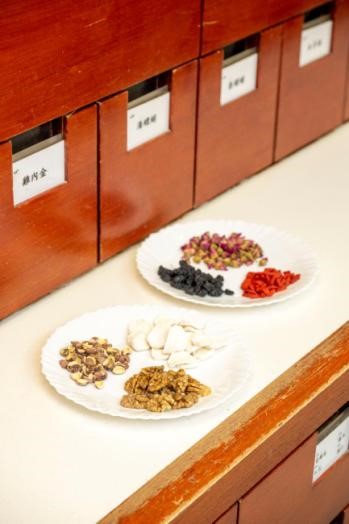
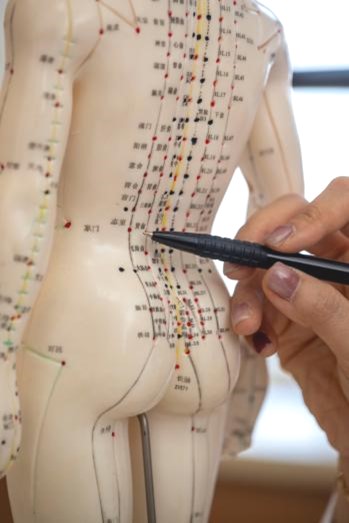
Dr. Chin suggested that (the former) , walnuts, yam, and lotus seeds can be cooked as a soup to replenish the kidney and the spleen; (the latter) mulberries, wolfberries, and roses can be brewed into scented tea, which is effective of nourishing the blood and soothing the liver. Combining acupuncture or acupoint massage in the treatment also improves the circulation of qi and blood.
“We provide targeted relief therapies pinpointing different symptoms. Ingredients such as Shudi / Rehmannia Root and Fu Xiao Mai / Blighted Wheat nourishing yin and reducing sweating are great for making soup to replenish liver and kidneys, as well as getting rid of deficiency heat, to treat hot flashes. Hair loss can be dealt with acupuncture and traditional Chinese medicine like Heshouwu / Tuber Fleece flower Root, Shudi / Rehmannia Root to restore the kidney and increase the production of blood. Those suffering from tinnitus can be prescribed with kidney-nourishing herbs / medicine, combining the benefit of ear acupuncture to promote the circulation of qi and blood. Calcium supplements are a good cure for back pain and moderate exercises help improve bone mass density. Massaging acupuncture points such as “Hegu” or “Sanyinjiao” also help relieve pain,” she added.
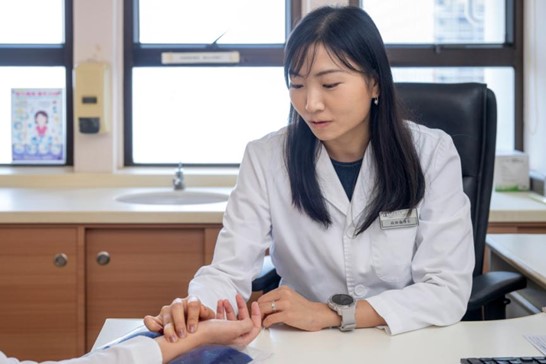
Dr. Chin also encouraged women to choose appropriate exercises according to their own body types to improve physical fitness and dredge the meridians.
Dr. Chin also encouraged women to choose appropriate exercises according to their own body types to improve physical fitness and dredge the meridians. She explained, “Traditional Chinese medicine used to name exercises as 'daoyin', which means guiding and improving blood and meridians’ circulation through body movements. High-intensity exercises might not be suitable for people with weaker qi, blood circulation and kidney at the beginning. Light exercises such as Baduanjin which is great for training their balance and muscles stretching are more appropriate for them. Patients should work out step by step and may consider other strength training and anaerobic exercises after replenishing qi and blood. In addition, women should adjust their mindset with emotional management and good living habits to destress and relax. All these will help them overcome periodic changes and stay healthy.”